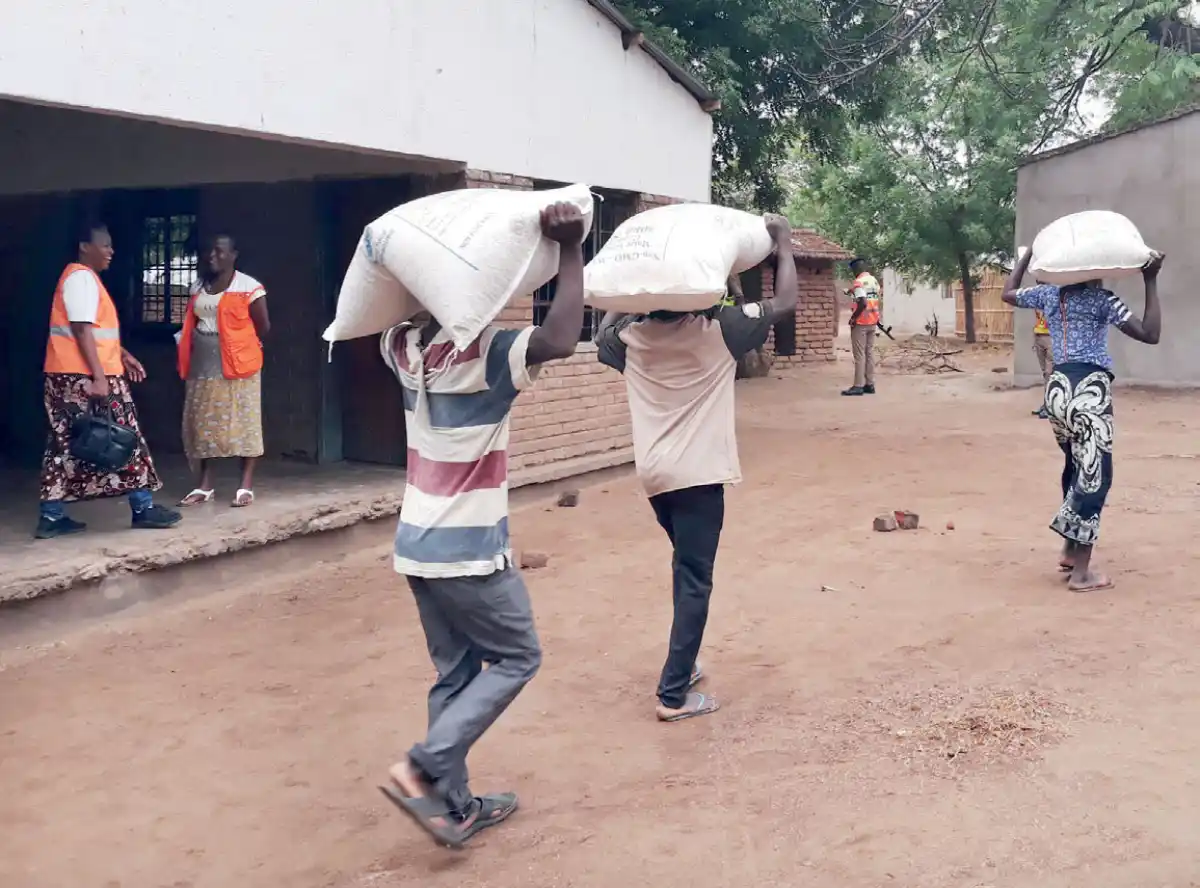
In Chikwawa District, the consequences of climate change have led to an alarming food insecurity crisis, leaving thousands struggling to survive.
Communities face the harsh reality of hunger as families are forced to make desperate choices, such as pulling children out of school or selling livestock.
“Every day, hunger is a reality for us,” says Chrissy Katopera from Chadula Village. “There have been times when we have completely run out of food.”
Her sentiments echo the urgency felt across the district, where the World Food Programme’s (WFP) recent maize distribution exercise has brought much-needed relief.
Mwasautsa Mwazika from Nyale Village narrates her family’s struggle: “My children have gone to school without food. Despite having a large farming area, I have had no harvest. I am grateful for WFP’s initiative to help us.”
WFP is responding to the crisis with an effort to assist 2.1 million people across Malawi.
On Wednesday, Country Director Paul Turnbull announced that the United Nations agency has allocated $38.5 million (K67 billion) for emergency food aid.
“Malawi is grappling with increasingly frequent and severe climate-related issues,” Turnbull said, adding that the impact of El Niño and recent tropical storms has worsened the situation.
WFP’s programme includes the distribution of 33,000 metric tonnes (MT) of maize and 317 MT of Super Cereal Plus, aimed at preventing undernutrition in children under two.
“Now, more than ever, it is critical to tackle these escalating risks and ensure vulnerable communities receive the support they need,” Turnbull stressed.
With the backing of international partners such as the European Union, France, Germany, Iceland, Ireland, Japan, Korea, Norway, Sweden, Switzerland, the Netherlands, the United Nations Central Emergency Response Fund, the United Kingdom and the United States, WFP aims to assist 1.5 million drought-affected people over the next two months.
However, the challenges remain immense, as 5.7 million people in Malawi are acutely food insecure, with needs projected to continue through March 2025.
Norwegian Embassy’s Deputy Head of Mission, Siri Frette Allsted reiterated the urgency of the situation, noting the desperate measures families are forced to take.








0 Comments